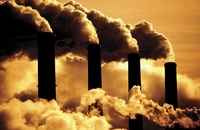
The Ai Group data found that 90 per cent of Australian food manufacturers had experienced an immediate cost increase that resulted from the carbon tax since introduced on July 1 2012, but only 11 per cent had been able to pass on this cost increase to consumers. The Ai Group research found that many Australian food manufacturers are absorbing the costs of the carbon tax, unable to increase prices due to competition from cheaper imports from overseas manufacturers – none of whom bear any similar tax regime.
Ai Group analysed 485 businesses over the first six months of the carbon tax in Australia, and its impact on business costs and prices. Ai Group reported that manufacturing businesses estimate the carbon tax increased energy costs by an average 14.5 per cent.
Chief Executive Australian Industry Group Innes Willox said that food manufacturers faced strong barriers in passing on costs to customers.
“The barriers they face include; pricing power among their customers; local demand conditions; and competition from imports produced in countries that do not impose similar carbon costs,” Mr Willox said.
According to Ai Group, the impact of the carbon tax on production costs and profitability for food producers is greater than was originally anticipated. This impact has come at a time when business competitiveness is under pressure on a number of fronts, including from the ongoing strength of the Australian dollar and relatively strong growth in unit labour costs.
While competitive grants are available to businesses such as food processors under the Clean Technology Program for capital investments to help reduce their exposure to carbon pricing, they are not covered by the more comprehensive assistance program available to the most emissions intensive industries.
Ai Group’s estimated cost increases have not been reflected in the Australian Bureau of Statistics (ABS) Producer Price Index (PPI) data on electricity prices to date, which show an increase of 6.7 per cent in the September quarter of 2012 when carbon pricing was introduced. However the PPI data does highlight the role of pressures beyond carbon, with electricity prices for manufacturers increasing by a total of 17.2 per cent over the year to the end of September 2012 and by 28.8 per cent since September 2010.
The Federal Opposition Leader Tony Abbott has vowed to axe the carbon tax if he wins the next election.





